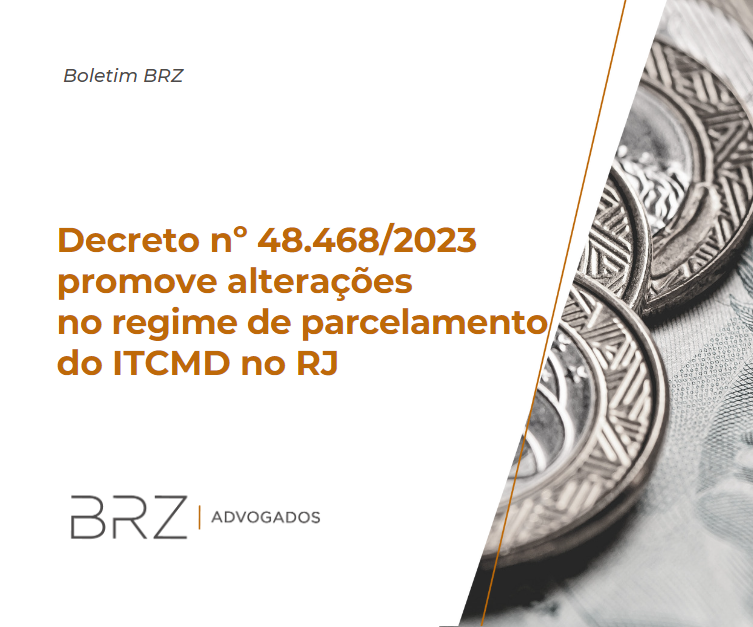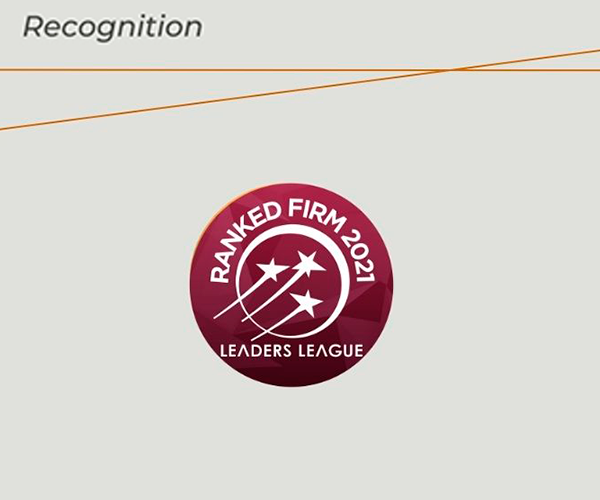The 25-year old law places Brazil among leaders in arbitration

Developments have taken place about alternative dispute resolution solutions, which have become a reality in the business environment.
ivo bari1
Ivo Bari, partner at BVZ Advogados.
When partners in a company fight, or when a large contract is breached, disputes often occur that can undermine the predictability of business plans and corporate governance.
In these situations, experts point to guaranteed confidentiality, qualitative analysis of the case and speed in resolving conflicts as advantages in choosing arbitration as an alternative method to the courts.
Today (23rd) marks the 25th anniversary of the Arbitration Act (Law 9307/1996) in Brazil. In this period, developments have taken place about alternative dispute resolution solutions, which have become a reality in the business environment. Major disputes are not settled within arbitration chambers, far from the public eye, preserving the image of the companies and partners involved. But there are still challenges.
“Arbitration in Brazil is a success case. Currently, both from a perspective of the number of procedures and from a perspective of actual sums involved, arbitration became very relevant in settling disputes”, explains lawyer and postgraduate professor Ivo Bari, a partner at BVZ Advogados.
For lawyer Fernando Breda, from firm Araúz Advogados, specialized in agribusiness, the evolution of arbitration in Brazil is unprecedented in the global legal scenario. “Brazil went from nearly no arbitration activity in the early 1990s to, in a few years, becoming one of the great protagonists of international commercial arbitration.”
fernando breda_page-0001
Fernando Breda, from firm Araúz Advogados.
Initial threats to arbitration have been overcome
According to the partner of BRGC Advogados, specialist in international contracts and in Oil and Gas, Marilda Rosado, at the embryonic stage of arbitration, there was talk of a phantom menace posed by the Federal Constitution, whose item XXXV details that “the law will not remove from the Courts the appreciation of injury or threat to any right”. “This issue is now fully settled,” she explains.
According to lawyer Rodrigo Loureiro, head of the France Desk of Briganti Advogados and co-chairman of the French-Brazilian Commission of the Paris Bar Association, “the declaration of constitutionality of arbitration by the Supreme Court in 2002 leveraged it to a leading position, which was imperative to make unconventional means of judicial conflict resolution more usual and therefore more widespread.”
Rodrigo Loureiro_Desk France (1)Lawyer Rodrigo Loureiro, responsible for the France Desk of Briganti Advogados.
Arbitration for different sectors and company profiles
“As good as it is, the fact is that arbitration is not a cheap choice,” says Ivo Bari. Therefore, the lawyer has recommended arbitration in contracts involving more significant amounts and potential disputes in the millions of reais. “If we are dealing with contracts and disputes in the thousands, there may be an economic impediment in the formulation of claims by the party, which either does not have the resources to pay for the procedure, or the costs to be incurred do not justify the amount to be eventually granted if it is successful in the dispute,” contextualizes Bari. In his opinion, there would be three types of arbitration ‘en vogue’: arbitration with the public administration, collective arbitration and corporate arbitration.
Attorney Marilda Rosado highlights the expansion of arbitration into new ‘specialized fronts’. “This is the case of arbitrations in the oil and gas industry, involving not only the relationship between private parties, but also public bodies. One can see growing participation of state and federal public bodies, including regulatory agencies in these proceedings”.
For lawyer Fernando Breda, “it can be said that in recent years the trend has been established that the direct and indirect Public Administration is a frequent user of Arbitration”.
In agribusiness, according to Breda, arbitration is seen as a factor that can streamline and further increase the production chain, optimizing all its operations by removing the resolution of its disputes from the Courts. Also according to the expert in litigation and arbitration, “sectors such as Infrastructure, Communications and Corporate Law have their conflicts essentially settled by Arbitration”.
In the Brazil-Canada Arbitration and Mediation Center (CAM CCBC), according to the data brought by the Center and highlighted by lawyer Marilda Rosado, the contracts most frequently submitted to arbitration in 2019 were:
(I) Agreements regarding the purchase and sale of shares/quotas;
(ii) Shareholders’ agreements and other corporate agreements;
(iii) Construction contracts, primarily EPC contracts;
Companies request arbitration clauses in contracts
Contracts must have an arbitration clause if the parties of this contract want arbitration as an option for dispute resolution.
For lawyer Ivo Bari, the trust businesses place in arbitration institute feeds back to the formation of new businesses. “Clients already have good experiences with arbitration, or have bad experiences in the Courts, and when the time for the next deal to be signed comes (M&As) they ask for the inclusion of arbitration clauses in the contracts. It’s a movement we see almost daily in our cases”, explains the business dispute resolution expert.
Actions for annulment of arbitration award
A controversial matter, however, is the real possibility that losing party in the arbitration seeks the annulment of the award by filing a lawsuit.
“It (the action for annulment of an arbitration award), of course, must not serve to cater to the losing party inability to accept the decision of the award, but solely and strictly to seek the recognition of a nullity – if any – so that the merits of the claim are returned to the arbitration court”, says Marilda Rosado, partner of BRGC Advogados. She points out, however, that these actions are not common and come in the wake of the exponential growth in the number of arbitrations.
According to lawyer Fernando Breda, from firm Araúz Advogados, the actions for the annulment of arbitration awards are not a sign of setbacks for the arbitration practice. “Depending on the content of the judicial decision that annuls an arbitration award, it may be something positive for the advancement of arbitration in Brazil. An arbitration award that does not respect the right to be heard, the due process or confidentiality and is later annulled by the Judiciary has the power to demonstrate a healthy involvement and contribution of state courts to the matter and an evolution to the entire practice of arbitration in Brazil”, explains Breda, who is the chairman of the Chamber of Mediation and Arbitration of the Commercial Association of Paraná (ARBITAC) and member of the Mediation and Arbitration Committee of the Brazilian Bar Association, Paraná Section (OAB/PR).
Marilda Rosado_BRGCMarilda Rosado, partner of BRGC Advogados.
In the eyes of Ivo Bari, from BVZ Advogados, the parties need to have the right to file for the annulment of the arbitration award in certain cases. “There is no denying that some sentences and procedures have defects that render them invalid. Our law is clear in delimiting the specific cases in which such lawsuits are applicable, given that both the law and the Brazilian Courts, which very much respects arbitration, do not allow the review of the merits of rulings, this being the most important protection there could be”, he explains.
“One can refer to the survey carried out in 2016 by the Chamber of Business Mediation and Arbitration (CAMARB) (18% of annulments) and more recently by a company called ARBIPIDIA, which focuses on the last five years and more specifically 2019 and 2020 (56 annulments in 292 judgments). However, such numbers must be assessed with caution, as there are previous statistics indicating that 90% of awards are complied with voluntarily”, stresses lawyer Marilda Rosado.
According to lawyer Rodrigo Loureiro, there is no way to compare an arbitration award to a judicial sentence. Arbitration awards cannot be reviewed by the Courts if no nullity is found. One cannot appeal to second or third instances. “When a nullity is found, it is because a serious defect in the whole process was in place, which can’t ever be allowed to occur. In judicial rulings, the party that believes it was hurt by the decision can use the two-tiered system and appeal”, explains the partner of Briganti and responsible for France Desk, the country that is the seat of the International Chamber of Arbitration (ICC).
International arbitration
For Rodrigo Loureiro, “Brazil is internationally recognized as having courts that are amply favorable to arbitration. In the international scope, a party could not make a claim against a foreign private co-contractor for the application of the legal categories that apply to the relations between the administration and the individuals of its nationality”, explains Rodrigo Loureiro. For the lawyer, both Brazil and France are very successful examples in the use of arbitration as a conflict resolution mechanism, specifically when it comes to international business disputes. Both countries “stand out on the list of the five countries with the most parties adhering to arbitration according to International Chamber of Commerce in Paris,” says Loureiro.
Despite the pandemic, no relevant changes were recorded in international arbitrations. “Since last year we have had several experiences with international arbitration, one of which was based in London. Despite the challenge of conducting arbitrations remotely, the English were well prepared to make this migration and everything went well”, explains Marilda Rosedo, who has a history of working in international arbitrations in European countries.
Moot competitions and young arbitrators
Marilda, from BRGC, stresses that, in addition to firm action in support of arbitration, CAMARB, CAM CCBC and the Brazilian Arbitration Committee (CBar) have been promoting debates and supporting educational initiatives, as many universities have joined Moot Competitions.
“One can already speak of a new generation among young arbitration enthusiasts. I myself participated several times as an arbitrator in competitions in Brazil and abroad. Before the pandemic, in 2019, CAMARB’s finals brought together hundreds of students and professors in person from all over the country in São Paulo.”
In a Moot competition, law students simulate legal disputes in a court of law. This is a recurring practice in several countries, which even includes international competitions, allowing the development of students by having them argue for fictitious cases, but following the procedures of a real situation, including oral arguments, conversations with judges or arbitrators, among others. Find out more.
#arbitration #corporatedisputes #resolutionofconflicts #corporatelaw



